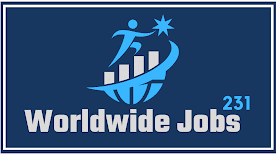You're one of many considering getting a private student loan. Many students turn to private loans when using all their federal student loan options. Being aware of your obligations before taking out a personal loan is crucial. This article will review private student loans, how they differ from federal loans, and your options.
Initialization
Private student loans can be a fantastic option for students who need extra money to pay for college. Federal loans are always the best option, but you might need more to pay for all your costs, including tuition, room and board, and other living expenses. Loans from private lenders can fill the gap.
How Do Private Student Loans Work?
Banks, credit unions, and other financial institutions offer private student loans to assist students in covering the cost of college. Unlike federal loans, personal loans are not backed by the government, which implies that compared to federal loans, private loans may have higher interest rates and fees.
What Are the Differences Between Private and Federal Student Loans?
There are several significant differences between private student loans and federal loans.
Interest rates: While federal student loans permanently have fixed interest rates, private student loans may have variable or fixed interest rates. The interest rates on personal loans could also be higher than those on federal loans.
Fees: Private student loans may be subject to origination, application, and other costs that federal loans are not.
Repayment: Private student loans offer different monthly payment options than federal loans, such as income-driven repayment plans.
Eligibility: Federal student loans do not require a cosigner or credit check, but private student loans might.
Private Student Loan Benefits and Drawbacks
Weighing the benefits and drawbacks of a private student loan is crucial before applying. Among the benefits of personal loans are:
Flexibility: Regarding loan amounts, repayment schedules, and eligibility requirements, private loans may be more flexible.
More significant Loan Limits: You may be able to borrow more money with private loans because they may have more substantial loan limits than federal loans.
Private loans might be processed more quickly than federal loans.
Nevertheless, there are a few disadvantages to consider, like:
Higher Interest Rates: Private loans may have higher interest rates than those on federal loans, which could result in you paying more interest overall.
Fees: Private loans may have higher prices than federal ones, which can add up over time.
No Forgiveness Options: Unlike federal loans, which include Public Service Loan Forgiveness, private loans do not provide the same forgiveness options.
Fifth, Private Student Loan Types
There are numerous private student loan options available, including:
Fixed-Rate Loans
A fixed interest rate on fixed-rate loans is the same throughout the entire term of the loan. This can be advantageous because it lets you plan your finances for a monthly payment amount. However, interest rates on fixed-rate loans could be higher than those on variable-rate loans.
Loans with Variable Rates
The interest rate on loans with variable rates can change over time depending on the state of the market. This may be advantageous if interest rates decline, but it may also be risky if they increase. Despite having lower interest rates than fixed-rate loans, variable-rate loans can be more challenging to budget.
Cosigned Loans
Cosigners are frequently parents or other creditworthy adults required for many private student loans. They consent if the borrower is unable to repay the loan. Loan terms and interest rates on cosigned loans may be better than those on uncosigned loans.
Loans with No Cosigner
Even though they may have stricter eligibility requirements and higher interest rates, some private student loans do not require a cosigner. A no-cosigner loan might be an option if you can't find a cosigner, but shopping around and comparing rates and terms is essential.
Individual Student Loan Providers
Lenders of different kinds that provide private student loans include:
Financial Institutions
Numerous banks and credit unions provide private student loans. Although these loans have affordable interest rates and flexible loan terms, they also have strict eligibility requirements.
Online lenders
Private student loans from online lenders are becoming increasingly common. These lenders might offer more accommodating loan terms and eligibility standards but charge more interest and other fees.
Brokers of private student loans
You can compare rates and terms from different lenders with the aid of private student loan brokers. They may charge a fee for their services, and they may only sometimes find the best deal.
How to Make a Private Student Loan Application
You must carry out the following actions to apply for a private student loan:
Look around to find the best prices and conditions.
Assemble all necessary paperwork, including records of your finances and academic history.
Please apply for a loan by completing the form and sending it to the lender.
Await the lender's approval and processing of your loan application.
By signing the loan agreement, you agree to the loan.
Alternatives for Repaying Private Student Loans
There are various repayment options for private student loans:
Minimum Payment
Standard repayment is the most common repayment plan for private student loans. It entails making fixed payments over a predetermined period, typically 5 to 15 years.
Gradually Repaying Debt
Graduated repayment entails initially making smaller payments that gradually increase over time. If you anticipate an increase in your income, this may be advantageous.
Extended Repayment
Extended repayment allows you to extend the repayment period beyond five to fifteen years. While this may result in lower monthly payments, you will accrue more interest throughout the loan.
Repayment Based on Income
By your income, some private lenders offer income-driven repayment plans that change the amount you pay each month. This may be helpful if you need help to make payments or have a low income.
Refinancing Private Student Loans
If you have several high-interest private student loans, you can consolidate them through private student loan refinancing. A refinance can lower your interest rate and streamline your payments, but it may require approval from a cosigner or good credit. Before refinancing, shopping around and comparing rates and terms is essential.
In summary
Private student loans can be a practical aid in covering college costs, but they come with risks and requirements. It's essential to shop around, compare rates and terms from various lenders, and become familiar with the different loan types and repayment options. You can then decide wisely and select a loan that suits your requirements and financial constraints.
FAQs
I want to apply for a private student loan; do I need a cosigner?
Obtaining a private student loan with a cosigner is possible, though it may be more complex and have higher interest rates.
Do federal student loans have an advantage over private ones?
It depends on your circumstances. Private student loans provide more flexibility and competitive rates, while federal student loans provide more benefits and protections.
Can I use a private student loan to cover my living expenses?
A private student loan may cover living expenses, tuition, and fees.
Can I refinance my private student loans?
You can refinance your private student loans to lower your interest rate and make your payments more manageable.
What will happen if I cannot make my private student loan payments?



0 Comments